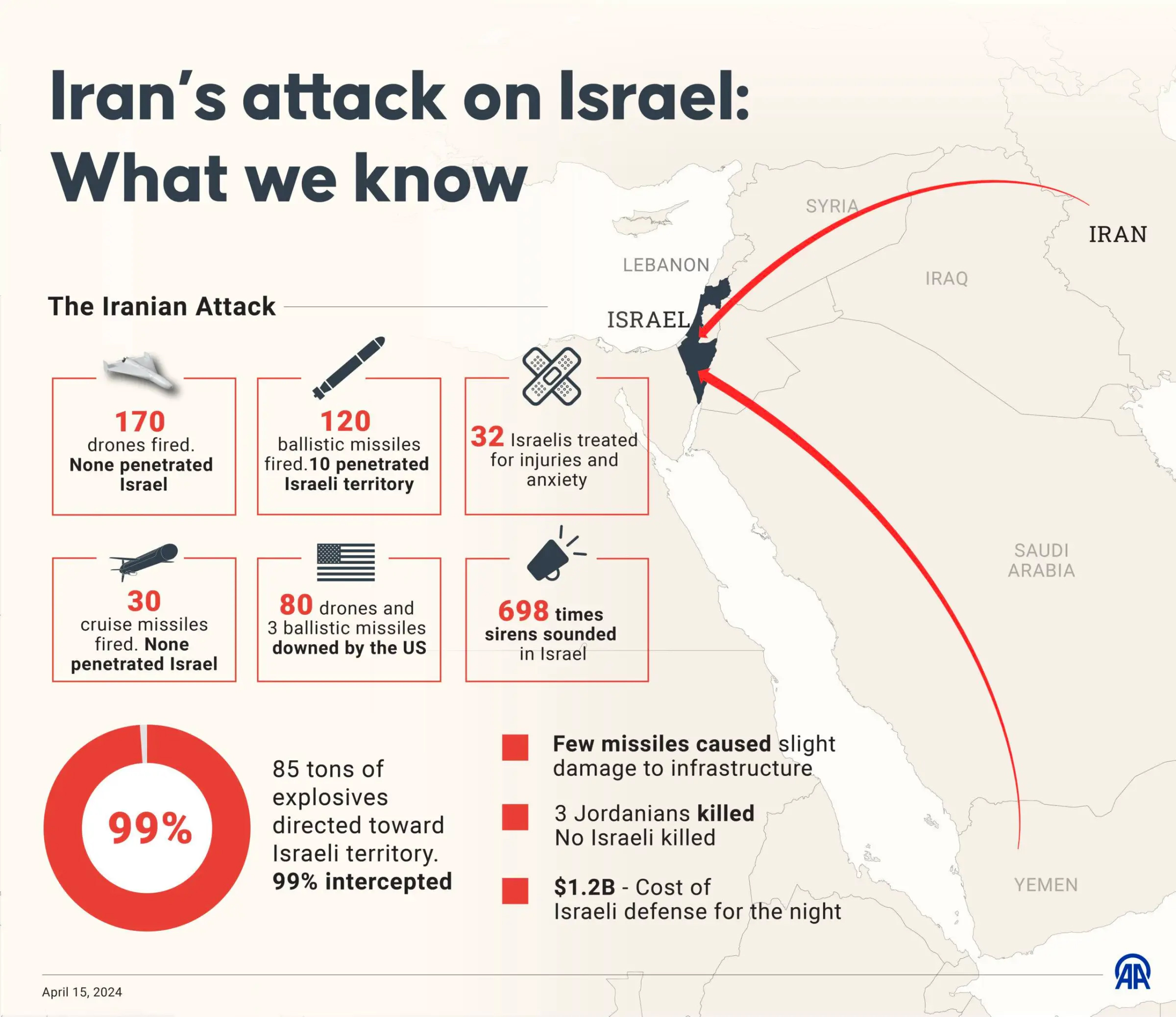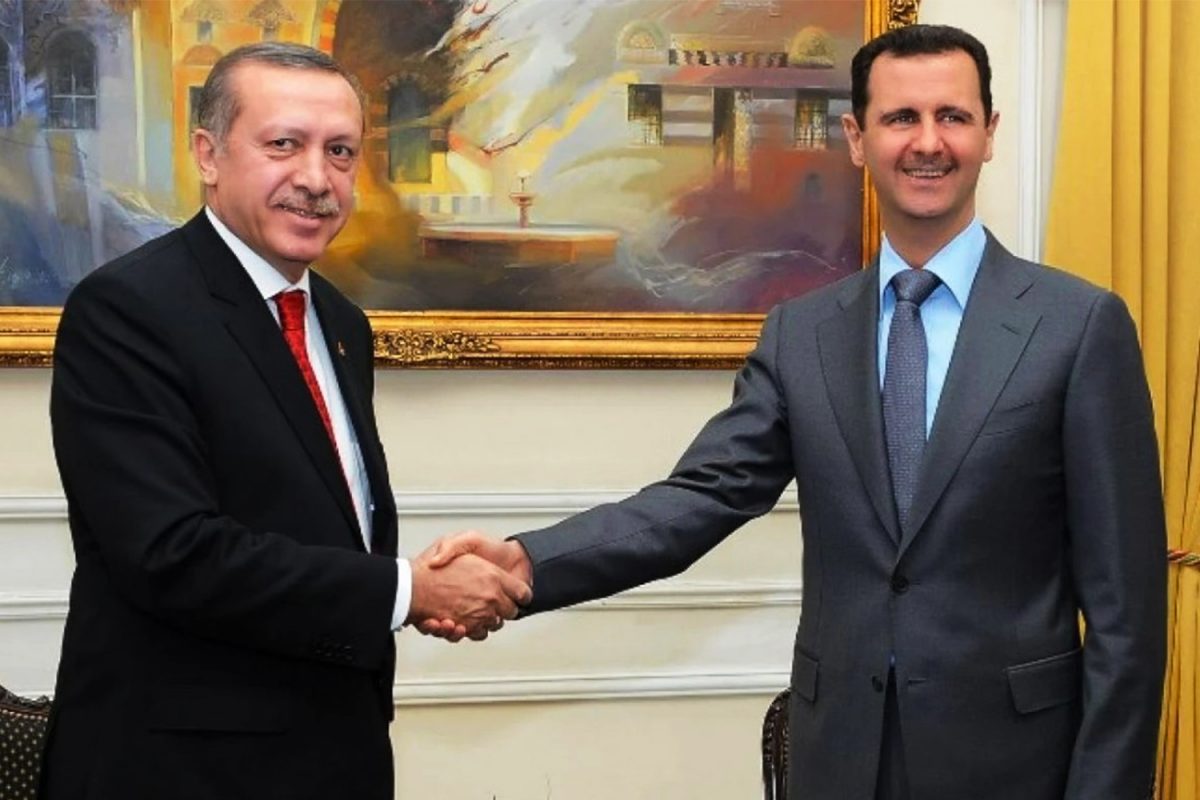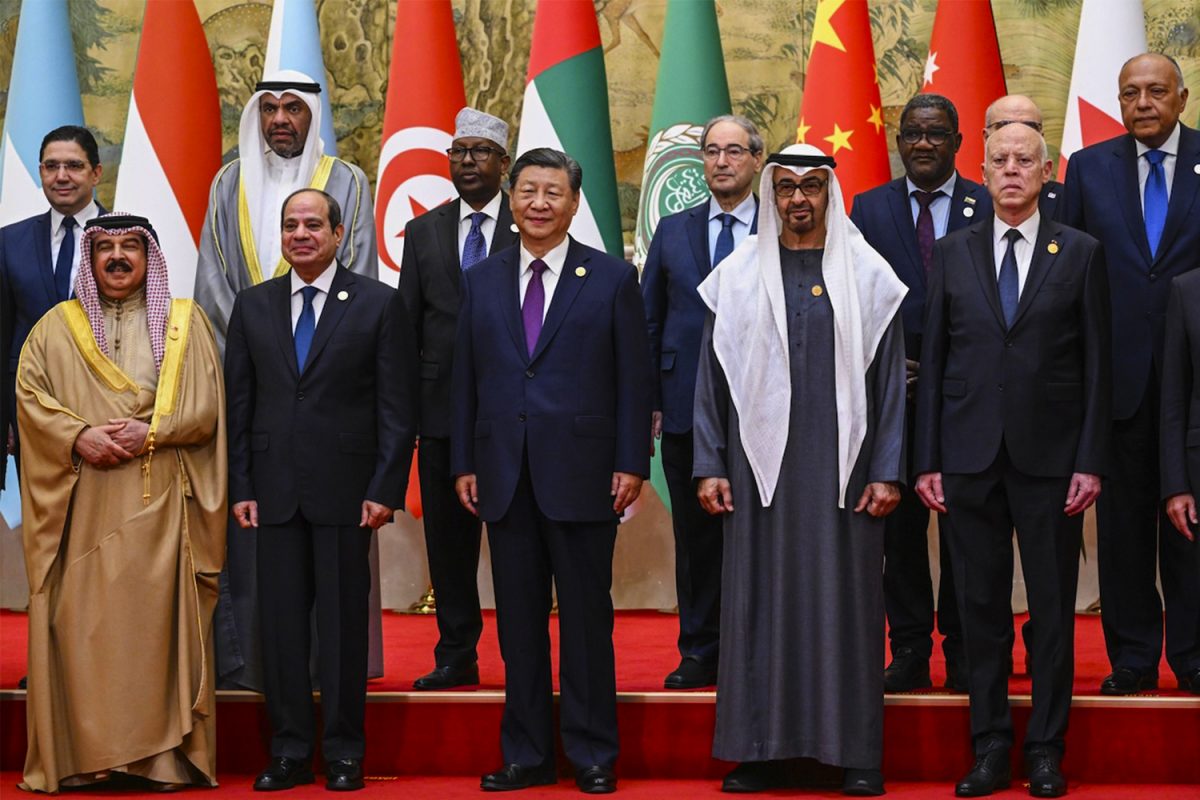After a week of telegraphing its plan to respond to Israel’s 1st of April 2024 attack on its consulate in Syria, Iran launched strikes on Israel on the night of the 13th April. Much of the world was expecting a response as Iran provided daily commentary running up to the attack of its intention to do so. The global media was in tailspin for over a week with talk of the Gaza war expanding into a wider regional war. This is significant, as for six months the surrounding nations and their regimes have largely abandoned the Palestinians despite their fighting talk. When placing this incident in context and perspective, a regional war doesn’t serve the interests of either the US and global powers as well as Iran. It does however serve Israel, but Tel Aviv is extremely unlikely to succeed in this endeavour.
There is little love lost between Israel and Iran. Their rivalry is one of the defining features of the Middle East. Israel views Iran as a hostile regional actor, a state sponsor of terrorism who wishes to wipe Israel off the map. For Iran, Israel is an artificial creation who is looking to expand its influence and borders in the region and must be stopped. The battleground between both nations is global, from the mountains of Lebanon to the jungles in Latin America, from the edges of Europe to the deserts of Africa. Both nations have regional agendas that are incompatible with each other. Both nations, however, do not directly confront each other. This is because Iran is 74 times the size of Israel and whilst it may not possess many modern military platforms, Iran has more of everything that Israel could throw at Iran. Israel also faces major military, demographic, geographic and economic realities that act as major constraints. On the flip side with the security guarantee the US and the west provide Israel any direct confrontation could threaten the regime in Tehran. For these reasons their war takes place in the shadows, sometimes spilling out into the public. Assassinations, covert activity, targeting of senior commanders and scientists and arming and supporting proxy groups is how Iran and Israel compete with each other.
There is little love lost between Israel and Iran. Their rivalry is one of the defining features of the Middle East
For the last two decades Iran has armed and supported Hezbollah in Lebanon, Hamas in the Gaza Strip, the Houthis in Yemen and forces in Iraq. It calls them the axis of resistance. Whilst Hezbollah is the most capable force Iran has nurtured, the group is part of the regime in Lebanon and has been in a number of wars against Israel. Israel on the other hand has been regularly targeting Hezbollah in Lebanon through air strikes and missile strikes. Since the Arab Spring began and reached Syria in 2011 Israel has regularly carried out attacks against Hezbollah targets in Syria and Iranian bases, forces and other targets in the country. Israel’s strike of the Iranian embassy in Damascus on the 1st of April comes on the back of regular strikes and incursions into Iraq, Lebanon and Syria. In November 2023 an Israeli strike on Damascus airport put the international airport out of service for a month.[1] What Israel carried out on the 1st of April came on the back of regular strikes by Tel Aviv, although on this occasion Israel targeted a consulate which is considered a red line for the international community.
Biting the Hand that Feeds you
The question is why would Israel in the middle of a brutal war in Gaza, which shows no end in sight after six months and is consuming significant resources leading to allies to condemn Israel and the ire of global public opinion, open a new front? Syria and Iran have played no role in the Gaza war for the past six months, in fact Ayatollah Ali Khamenei told Ismail Haniyeh when they met in Tehran in early November 2023: “You gave us no warning of your Oct. 7 attack on Israel and we will not enter the war on your behalf.”[2] We have shown through our deep dives on the Gaza war there are deep differences between the White House and other factions within the US political system in supporting Israel. There are also major differences between the US administration led by President Joe Biden and the right-wing government in Israel who are openly disobeying US orders and refuse to align with America’s strategy in the Middle East. This has been possible due to the Zionist Lobby’s support for Israel, which had restricted the US president’s hand. As a result, the Biden administration adopted a slow but steady rather than resolute and fast approach, under which it externally maintains a position of unconditional support for Israel, while behind the scenes it works to increase pressure on the Netanyahu government, to get it to align its with US strategic interests.
But after six months of the brutal war the Biden administration has had little success in its attempts to steer Israeli policy regarding Gaza. This has led to severe criticism of Israel as the death toll increased and as it refuses to engage in meaningful talks with Hamas to bring the war to a conclusion. As a result the White House released information to let it be known that it was reviewing the possibility of slowing down weapons deliveries to Israel, in order to force it to comply with American demands.[3] The White House formally told Israel that it would only continue to supply weapons if the Israelis gave a written assurance they would abide by international law when using the weapons, and allow humanitarian aid into Gaza.[4] The Biden administration gave Israel until mid-March to sign this letter. On the 14th of March 2024, senior democratic leader and one of America’s top legislators, Chuck Schumer called for regime change in Israel and for Netanyahu to go. This was the most open attacks upon Israel by one of America’s most senior politicians.[5]
after six months of the brutal war the Biden administration has had little success in its attempts to steer Israeli policy regarding Gaza
The Israeli strike on Iran’s consulate in Damascus on the 1st of April came in the context of growing American pressure against the Israeli government to get in line with US demands. Consulates are considered diplomatic buildings and therefore off-limits. What the Netanyahu government was attempting was to draw the US into supporting Israel as Iran would have to respond to this brazen attack. Israel’s act of expanding the war from Gaza to the wider region would force the Biden administration to defend and arm Israel, if Iran responded with a strike. The attack by Israel was a cynical ploy to force the hand of the White House, when pressure was increasing on Israel. Pentagon spokesperson Sabrina Singh said Israel provided no advance warning of the strike on the Iranian mission in the Syrian capital. “We were not notified by the Israelis about their strike or the intended target of their strike in Damascus,” Singh told a briefing, adding that Iran had been privately told the US was not behind the strike.[6] The US doesn’t directly communicate with Iran as they do not have diplomatic relations. Messages are usually passed via the Swiss embassy officials or via other world leaders. The fact this message was passed directly to Iran was unprecedented and, in some ways, hung Israel out to dry.
Frenemies
The Iranian response and how they went about their attack reveals Iran’s strike was to merely save face with no intention of escalation. The fact that Iran has done little when the genocide has been taking place in Gaza for six months and only acted when its own embassy was attacked is very revealing of what Tehran considers as strategic and what is tactical.
Following Israel’s attack on the Iranian embassy compound in Damascus, Iran and the US entered into dialogue. Iran’s Foreign Minister Hossein Amir-Abdollahian at that time summoned the Swiss diplomat who represents US interests in Iran. He said at the time that through the backdoor channel: “…an important message was sent to the American government as a supporter of the Zionist regime.”[7] These communications continued with the German Foreign Minister Annalena Baerbock confirming she spoke with Iranian Foreign Minister Hossein Amir-Abdollahian on the request of the Biden administration. During this conversation, Amir-Abdollahian said Iran would attack Israel, but “…in an appropriate and limited way…” in order to avoid escalation. Baerbock conveyed a message from the US, warning Amir-Abdollahian not to go too far.[8] The New York Times confirmed that among informed defence analysts the dominant view became that Iran would strike Israel in a way that would allow it to save face, but measured enough to not arouse an even fiercer counterstrike.
The attack by Israel was a cynical ploy to force the hand of the White House, when pressure was increasing
These communications only intensified as Iran’s strike-day came closer. The Iranian Foreign Minister Amir-Abdollahian on Sunday the 14th of April, after the attack, said that Iran gave neighbouring countries and the US 72 hours notice it would launch the strikes. Turkey’s Foreign Ministry said it had spoken to both Washington and Tehran before the attack, adding it had conveyed messages as an intermediary to be sure reactions were proportional. “Iran said the reaction would be a response to Israel’s attack on its embassy in Damascus and that it would not go beyond this. We were aware of the possibilities. The developments were not a surprise,”[9] said a Turkish diplomatic source. Iraqi and Jordanian officials also said Iran had provided early warning of the attack the week before, including details.[10]
Iran launched its strikes on the evening of Saturday the 13th of April and the morning of Sunday the 14th of April. The attack involved a combination of drones, rockets and ballistic missiles, some 300 projectiles in total. The attack caused very modest damage as most projectiles were shot down by Israel’s Iron Dome defence system and with help from the US, Britain, France and Jordan. Iran, within minutes of launching the strikes, from both Tehran and its UN office issued a press release “…that this was it…” “Iran has achieved everything it wanted” and “The matter can be deemed concluded.”[11]
Iran for over a week was proclaiming it would attack Israel, it informed everyone it would, provided details and in some cases even the flight paths. The Guardian said: “Iran’s retaliation was choreographed and telegraphed. There was almost zero chance it was going to inflict damage on Israel with that level of warning. The point was to make a scene, and it did that.” Iran’s use of drones from its own territory required a number of hours to reach Israeli territory, (Israel is over 500 miles from Iran) and Iran notified the US immediately following their launch. This provided Israel and the US ample time to prepare their defence systems, as the Iranian rockets were timed to land in Israel at the same time as the drones. This indicates Iran’s objective was to avoid serious damage to Israel and therefore to limit the risk of escalation.
The whole incident reveals Iran is not interested in escalating things and doesn’t want a region wide war. Iran prefers to fight in the shadows and behind the scenes and take credit for such actions but it has no interest in a direct confrontation. Iran has serious domestic challenges; the clerical regime is struggling for survival after 45 years. The mass protests last year over the killing of Mahsa Amini show regime survival is the clerical regime’s ultimate goal and external issues come after this. This is why Iran coordinated, informed and cooperated with the US and in the end carried out a very limited strike to save face. What this also shows is both Iran and the US can cooperate and coordinate when national interests necessitate it. The communication over the strike is not the first time the US and Iran have coordinated. We saw similar coordination in Iraq, Afghanistan and Syria. The animosity serves a purpose for both nations with domestic audiences, but Iran and the US have a long history of cooperating on select issues. Iran, rather than using Israel’s attack on its consulate to rally the region, arm the Palestinians or create a unified front with the region’s rulers, chose to take the path of cooperation and coordination with the US and not escalate matters with Israel.
Iran coordinated, informed and cooperated with the US…What this also shows is both Iran and the US can cooperate and coordinate when national interests necessitate it
Israel’s bellicose behaviour is the fundamental problem in the region and has been for decades. The US is being forced now to deal with the spoiled child of its own creation who always gets what it wants and refuses to even listen to its master now. The US spent decades building Israel’s invincibility and now has to contend with using behind the scenes tactics to keep Israel in line, without publicly undermining its decades long work. In a call on Saturday the 13th of April President Biden told Israeli prime minister Benjamin Netanyahu that the US won’t support any Israeli counterattack against Iran. “You got a win [killing the Iranian Revolutionary Guard general in Iran’s Damascus embassy]. Take the win.”[12]
Whilst Iran’s direct attack on Israel shattered the status quo and rules of engagement that have defined Iran and Israel’s shadow war, a region wide escalation is something the global powers, regional powers and Iran do not want. Israel is alone in this endeavour and may find itself isolated if it attempts such a tactic again. Israel has not achieved victory in Gaza after six months, it’s losing the propaganda war and its been accused of possibly carrying out a genocide. Israel’s credibility has never been worse.
[1] Syria says Israel strike puts Damascus airport out of service | Reuters
[6] US denies involvement in Israeli strike on Iranian embassy in Damascus | Middle East Eye
[7] Iran says Israel bombs its embassy in Syria, kills commanders | Reuters
[8] Iran signals it will limit response to Israel attack to avoid escalation (axios.com)
[9] Iran says it gave warning before attacking Israel. US says that’s not true | Reuters
[10] Ibid
[11] See, https://twitter.com/iran_un/status/1779269993043022053?s=48
[12] Biden told Netanyahu U.S. won’t support an Israeli counterattack on Iran (axios.com)





